The pond gets new fish
If you've been following along regularly you'll know that I updated the pond this spring: emptied it, made it a bit smaller, refilled. I've been waiting to add new goldfish, and the wait is finally over!
A dozen small comets were purchased and introduced to their new home last week!
This did not go as smoothly as planned -- but I'm getting ahead of myself.
First I should point out that this pond has been an amphibian breeding ground for a couple of months now. Toads and frogs were sort of driving us crazy with their nightly chorus, and the result is that there are more tadpoles in the water than I've ever seen before!
This is the first year that I've seen frog tadpoles, as the fish have eaten them in the past.
That's the reason that I waited so long to add the fish.
It's also the reason that there are so many mosquito larva in the water right now:
I'm not sure why the mosquito dunks did not work but I couldn't wait any longer to add some predators to this ecosystem.
Fish time!
I got the pond plants repotted at the same time...
...which seemed to make the fish happier.
But they didn't appear to know that mosquito larva are food -- that was the first bump in the plan. I also think the swarms of tadpoles were freaking them out a bit.
Since I was also working on cleaning up the pond edge at the time -- adjusting rocks, trimming the liner, fixing low spots -- I decided to add more water to the pond. I want it to overflow into the area with the Petasites japonicus, as I have trouble keeping those plants happy when things get hotter.
To add water I fill a 32-gallon plastic trash bin at the water's edge, add the chlorine removal chemicals, then let the water into the pond. I've done this many times over the past few years and it's worked so well.
I forgot though that the rocks at the edge of the pond are newly placed and not yet locked into position.
Kersplash!! (The second problem)
As I stepped away from the full bin to put the hose out of the way, the rock upon which the bin was sitting tilted slightly -- my weight was holding it level -- and the 250 lbs (113 kg) of water-filled bin "jumped" into the pond.
I spent the next 30 minutes rescuing tadpoles that had surfed out of the pond.
Did the shockwave kill any fish? I watched for a while and never was sure -- I saw some of the fish after this, but not as many. They weren't floating at least, and were probably hiding in the depths.
It's been a few days now and I can only see a couple of fish. I still see mosquito larva. Have the other fish starved? Did raccoons get them? Did the leopard frog that's still hanging around catch some? Are they just better at hiding now?
This was easier the first time I did this I think.
I'm going to play it safe and get some more fish, but I'll do one last visual check of the pond first.
.

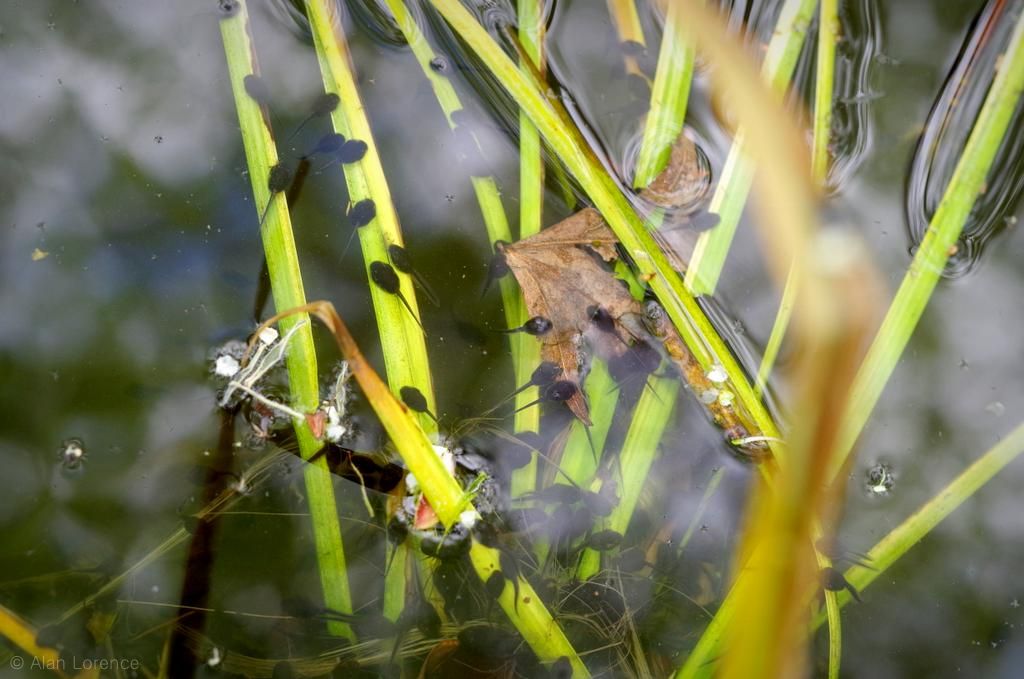
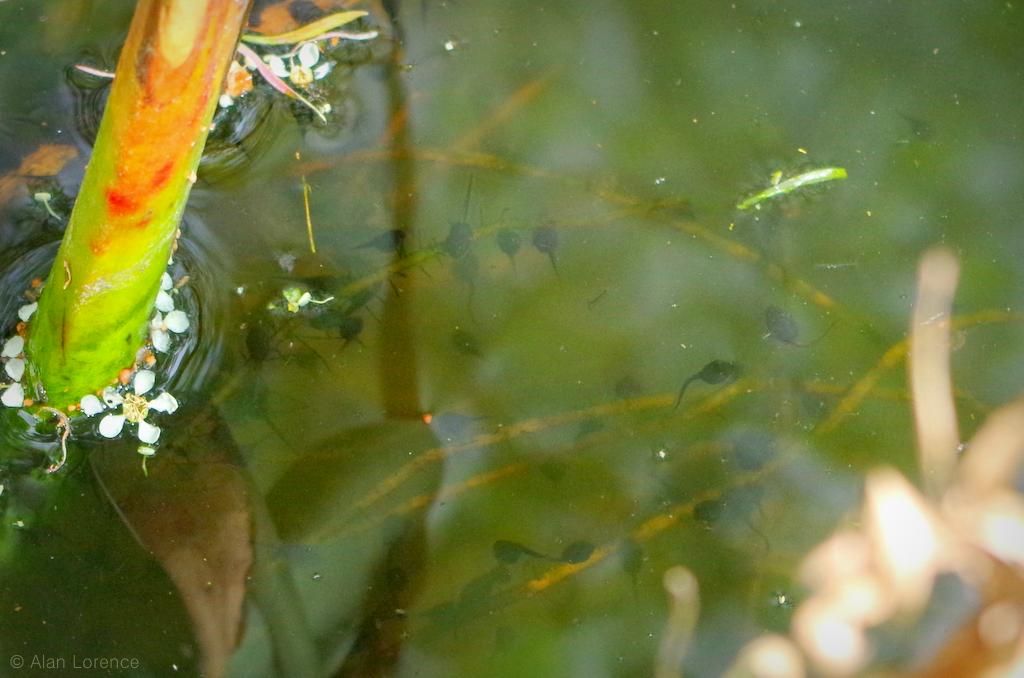


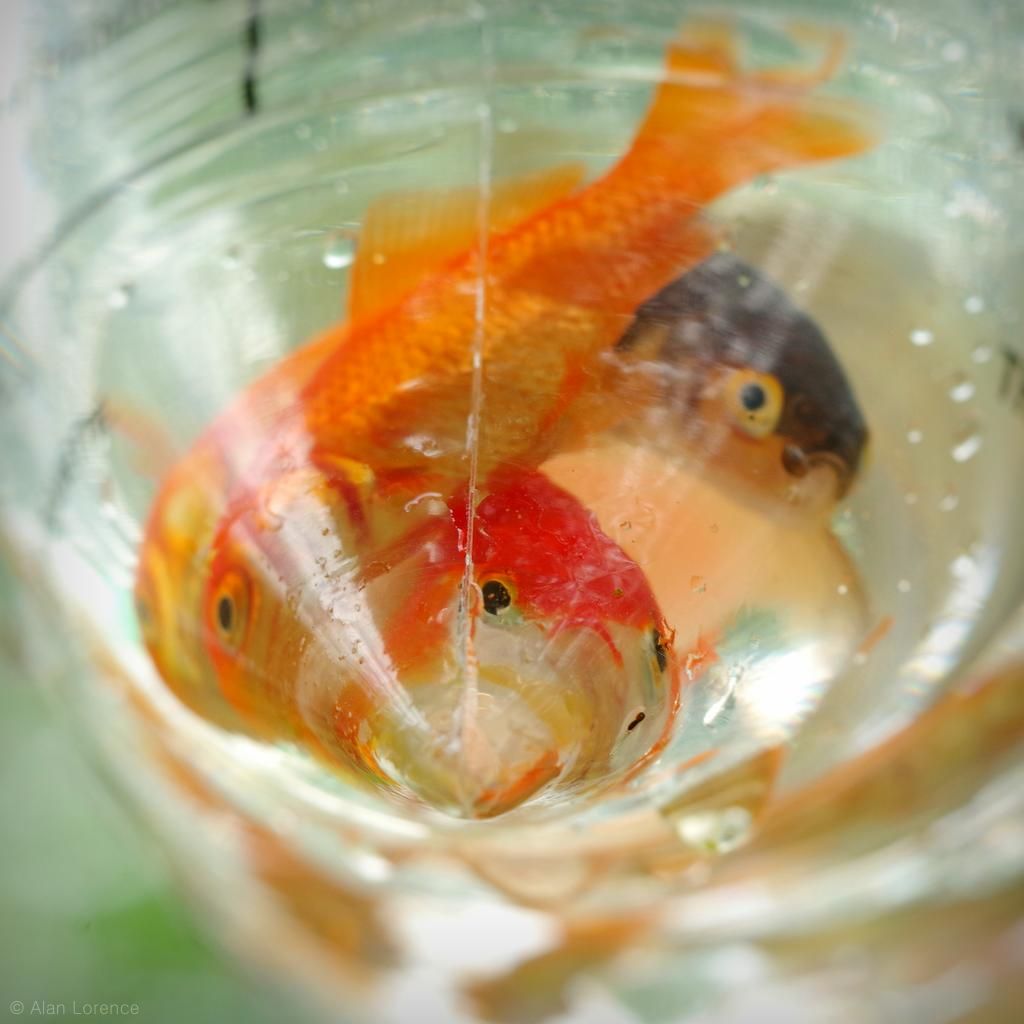
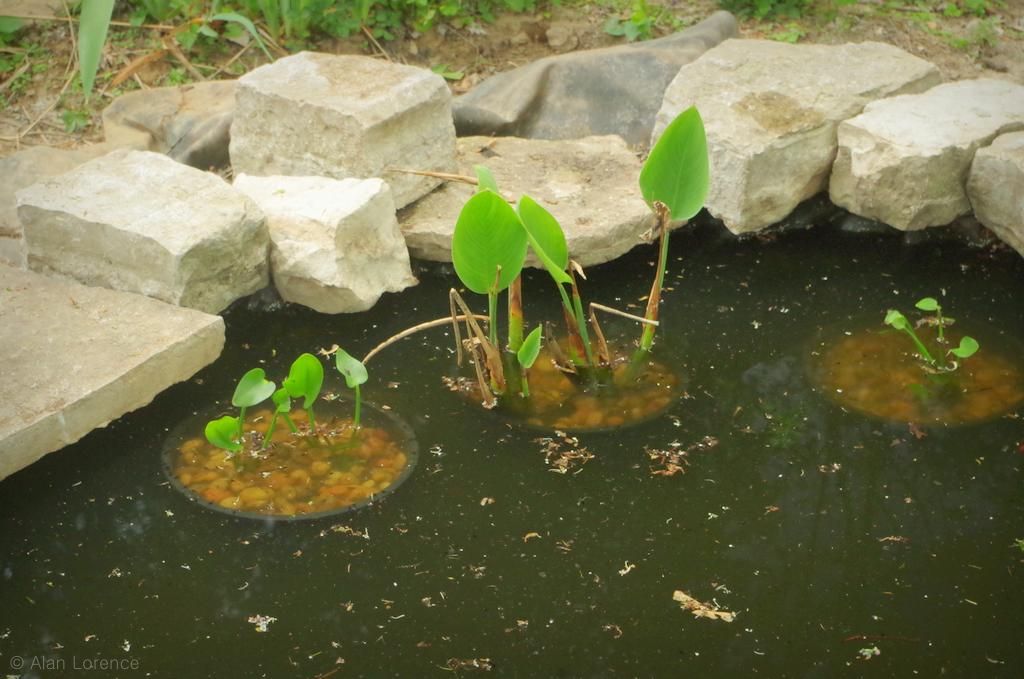
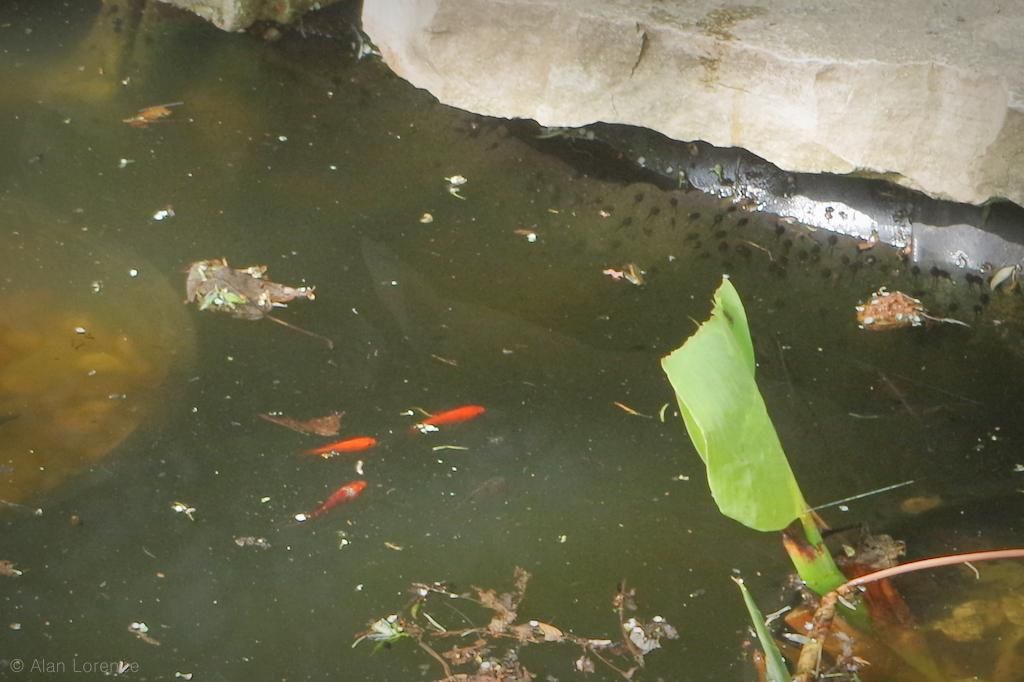





Prayers for the fish
Best of luck for the fish!
And here I thought those things only happened to me!
You've got me on the edge of my seat. Keep us posted! I bet the fish are simply hiding.
I did check again and only saw three fish after several minutes. I added more yesterday and watched at least one of them eat a few larva right away, which was great to see! I'll post an update in the near future.
Ponds are a whole other level of maintenance--up there with bamboo! Froggies! Are they a native species?
Oh my - must have felt to fish and tadpoles like the Big One will feel to us - tsunami included. I think Gerhard is right - I think they all went into hiding. :)
If I were a fish, I'd be hiding. This made me laugh as something similar happened to me except that it was I that went kersplash into the pond. Good times. When I fill the pond, I simply throw the chlorine removal stuff in the pond near where the hose is and turn it on. Much easier than trying to mix stuff first and then put it in. I'm much lazier than you.
I do the same Outlaw - never had a problem doing it that way.
Peter and Lisa: that's a good tip, as filling the trash can is a pain. I was just afraid of killing the fish, tadpoles, and any desirable insect life (like dragonfly nymphs).